All Stories
-
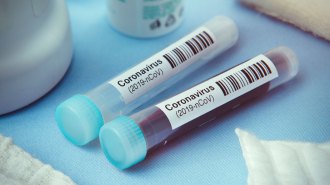 Health & Medicine
Health & MedicineHow antibody tests work and could help fight the coronavirus
Coronavirus antibody tests look for signs in the blood that someone has had an infection and recovered, and could take only a finger prick.
By Dawn Fallik -
 Health & Medicine
Health & MedicineFace mask shortages have sparked creative solutions. Will they work?
Homemade masks, reusing masks and even scuba gear are some of the ideas for dealing with health care workers’ lack of supplies during the COVID-19 pandemic.
-
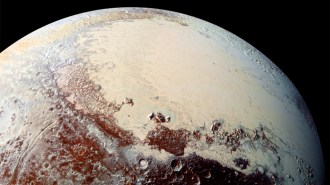 Planetary Science
Planetary ScienceIf Pluto has a subsurface ocean, it may be old and deep
New analyses of images from NASA’s New Horizons spacecraft suggest that Pluto may have had a sea beneath its icy shell for roughly 4.5 billion years.
-
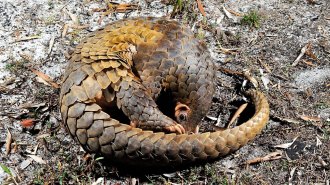 Health & Medicine
Health & MedicineThere’s no evidence the coronavirus jumped from pangolins to people
Pangolins captured in anti-smuggling activities in southern China were found to harbor viruses related to the new coronavirus.
-
 Space
SpaceA controversial X-ray glow didn’t show up in the Milky Way’s dark matter halo
A new look at old data suggests that an odd X-ray glow that emanates from some galaxies cannot come from decaying dark matter.
-
 Archaeology
ArchaeologyNeandertals’ extensive seafood menu rivals that of ancient humans
Finds from a coastal cave in Portugal reveal repeated ocean foraging for this European hominid.
By Bruce Bower -
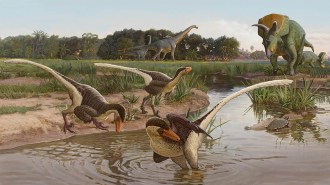 Paleontology
PaleontologyFossils of a new dromaeosaur date to the end of the Age of Dinosaurs
Fossils from a new dromaeosaur recovered from New Mexico suggest these fierce predators were diversifying up to the end of the Age of Dinosaurs.
-
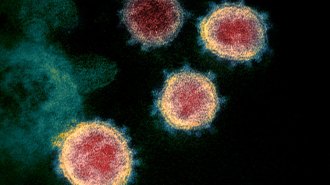 Genetics
GeneticsNo, the coronavirus wasn’t made in a lab. A genetic analysis shows it’s from nature
Scientists took conspiracy theories seriously and analyzed the coronavirus to reveal its natural origins.
-
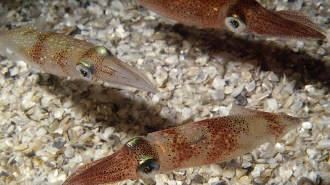 Genetics
GeneticsSquid edit their genetic material in a uniquely weird place
Some squids’ seeming ability to edit RNA on the fly could help scientists develop a technique much like the DNA-editing tool CRISPR, but for RNA.
-
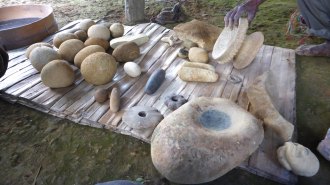 Archaeology
ArchaeologyNew Guinea’s Neolithic period may have started without outside help
Islanders on New Guinea experienced cultural changes sparked by farming about 1,000 years before Southeast Asians arrived, a study suggests.
By Bruce Bower -
 Health & Medicine
Health & MedicineYou can help fight the coronavirus. All you need is a computer
With Folding@home, people can donate computing time on their home computers to the search for a chemical Achilles’ heel in the coronavirus.
-
 Health & Medicine
Health & MedicineWhen will the coronavirus pandemic and social distancing end?
Social distancing may have to continue for months to prevent a resurgence of COVID-19. Wider testing and isolation of cases could ease such measures.